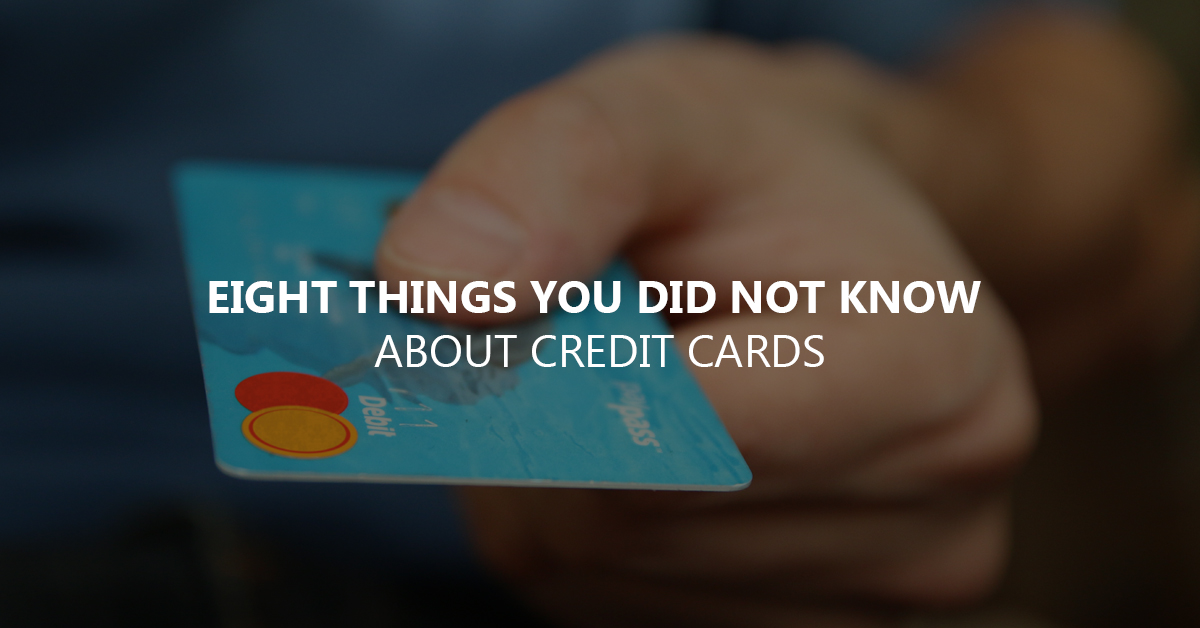
Have you cut up your credit cards? Did you grow up being told that having a credit card leads you down a path of lifetime debt? If you avoid credit cards at all costs, now is the time to reconsider applying for this type of credit. Following are some surprising facts about credit cards that many consumers are not aware of.
1/ You can make money out of a credit card
Individuals who pay their balance in full every month and make use of a card that offers rewards actually make money by using a credit card. Leading cards that offer cash rewards give card holders anywhere from 1.5 to 2 percent back on each purchase they make. Choose a travel reward card and the benefits may be even better. However, those who struggle to pay off the balance in full each month and those who spend freely when they have a credit card may wish to stick with a debit card.
2/ Credit card don’t have an expiration date
Credit cards truly don’t have an expiration date, although issuers do put one on the card. The number on the card remains the same when a new card is issued. Only the expiration date changes, as this provides issuers with a way to know when a new card should be sent. In addition, the expiration date is needed for purchases made over the phone or online. As the merchant is unable to see the card, this information is needed to confirm ownership of the card and to ensure the card is in the possession of the buyer.
3/ Don’t pay it off
When you pay down a credit card, but don’t pay it off, you’ll find your credit score goes up more than if you pay in full. The reason for this is credit bureaus look at credit utilization when calculating your score. In fact, this is the second biggest variable they consider, coming in only behind credit history. It’s best to keep credit utilization under 35 percent at all times, however, even if the balance is paid in full each month. The reason for this is creditors differ in terms of when they report to the credit bureaus. If a high balance is reported, it could have a negative impact on the person’s score for up to 90 days, even if the balance is paid in full a day or two after the report is made to the bureaus. Keep this in mind when you go to use your card, and pay attention to your credit utilization at all times.
4/ You get more safeguards
Your credit card offers more safeguards in the event your card is compromised. The Truth in Lending Act oversees credit card expenditures and limits consumer liability to $50 if the card is stolen and used fraudulently. The Electronic Funds Transfer Act governs debit card purchases and bases consumer liability on when the fraudulent charges are reported. If they are reported within two days, the consumer’s liability is capped at $50. If a report is made three days after the fraudulent charges are made, the consumer’s liability increases to $500, and any reports made after a 60-day period can lead to the consumer being responsible for the entire amount. Banks have leeway, however, and may set their own guidelines in this situation. In addition, signature purchases may be covered differently, as banks earn more when a customer signs for a purchase.
5/ Your sex matters
Your sex plays a role in how you use a credit card. Women, according to a 2012 report compiled by the FINRA Investor Education Foundation, tend to make the minimum payment on credit cards, carry a balance, and incur late fees and penalties. In addition, the report found women are less financially literate than men, although the gender gap vanished when the survey restricted answers to both sexes with high financial literacy. Women need to keep this in mind and pay attention to how they use their cards to ensure they don’t get in over their head.
6/ Don’t cancel your credit card
Many individuals are now choosing to cancel their credit card and rely strictly on a debit card. Don’t make this mistake. What many consumers fail to realize is canceling a credit card can actually hurt their credit scores. Credit bureaus take into account the amount of time a person has had a credit account open when calculating their score, thus canceling cards that have been held for an extended period of time can be detrimental. Keep the accounts open to prevent this from happening.
7/ Debit cards can be refused
Certain businesses refuse to accept debit cards. Car rental companies are a good example of this, as they either don’t allow consumers to reserve a car with a debit card or they require a credit check when reserving the car. Some companies do allow for this but place a large hold on the debit card. With a credit card, these issues are eliminated.
8/ Credit cards help you build credit
Credit cards build credit, but debit cards do not. Even when the debit card is run through the MasterCard or Visa network, the purchases are not reported to the credit bureau. Individuals need to keep this in mind, as credit has become essential in so many areas of life.
Now that you know these surprising facts about credit cards, it’s time to reconsider using a card of this type. Although you must take care so you don’t get in over your head, these cards offer numerous benefits not seen with debit cards. Keep this in mind and review your overall financial situation. You may find a credit card is the missing piece you have been searching for.
Sources: Money Under 30 / SuperMoney
